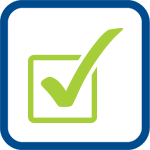Wellbeing WOF: Check yourself out
Give yourself the once over! Use Katharine Findlay’s warrant of fitness checklist to help you and your loved ones stay healthy through the year.
Alcohol consumption
How much do you drink? Moderate drinking may be beneficial to health, but alcohol consumption is a factor in the development of many diseases including cancers. To reduce long-term health risks, drinking guidelines for men are no more than 3 standard drinks a day and no more than 15 in any one week. For women these figures are 2 standard drinks per day and no more than 10 per week. A minimum of two alcohol-free days a week is recommended for both sexes. Alcohol should not be consumed during pregnancy. Alcohol and Drug Helpline: 0800 787 797.
Blood pressure
Had yours checked recently? High blood pressure (known as hypertension) is a risk factor for conditions like heart disease, stroke, and diabetes. It can be managed by medication and/or lifestyle changes such as quitting smoking, good diet, regular exercise, limiting alcohol, and managing stress. Make sure your GP checks your blood pressure when you next visit. Kits that measure blood pressure are available from pharmacies for regular monitoring at home.
Bone density
Osteoporosis is a major cause of fractures or broken bones as we age. Screening tests are sometimes available at pharmacies and shopping malls and can be helpful to identify people (often women) who are most likely to benefit from further bone density tests. The only real way to know your bone density is to have a bone density scan (or DXA) to measure the amount of calcium in your bones.
Bowel cancer screening
New Zealand has one of the highest bowel cancer rates in the world. Bowel screening can detect bowel (colorectal) cancers at an early stage, when they can be treated more successfully. This is important, as there may be no warning signs or symptoms that bowel cancer is developing. A limited national screening programme is getting underway. You can also ask your GP about your eligibility. Or you can for a simple bowel test kit (Faecal Occult Blood Test – FOBT) but you will have to pay for the laboratory blood tests.
Breast screening
Breastscreen Aotearoa offers free mammograms every two years for women aged between 45 and 69. If you are not registered, ask your GP about referral; phone 0800 270 200 or register. Screening is not a diagnosis. All women should do regular breast self-examinations, and consult your doctor immediately about anything that is not normal for you.
Cervical screening
The National Cervical Screening Programme is available to all women in New Zealand aged between 20 and 70. Having a smear test every three years is the best way of finding and treating abnormal cell changes and preventing cervical cancer from developing. Check with your doctor if you have unusual symptoms at any age. The cost of a smear test will be what you usually pay to see your doctor or nurse. Some community or private health organisations offer a free or low cost service. Phone 0800 729 729.
Continence problems
Incontinence can nearly always be treated or managed, so don’t be afraid to ask for help if you have a continence problems. Careful assessment to sort out the cause and find the best solution can make a real difference to your quality of life. Talk to your doctor or practice nurse about exercises to improve bladder control, and ask your pharmacist for further information about continence support. Phone the National Continence Helpline 0800 650 659 during business hours.
Depression
Feeling down in response to stressful events in our lives is a normal reaction. But when feelings of misery and unhappiness persist, it may not be a matter of ‘just getting over it’. You or a loved one could be experiencing depression. You are not alone: 1 in 6 New Zealanders will experience a serious depression at some point in their life. If you suspect you are depressed, don’t try to deal with your depression alone. Tell someone you trust how you are feeling, consult your GP about the best course of action, or contact the free Depression Helpline, 0800 111.757. Young people can be especially vulnerable. The Low Down is a website devoted to helping them understand and deal with depression.
